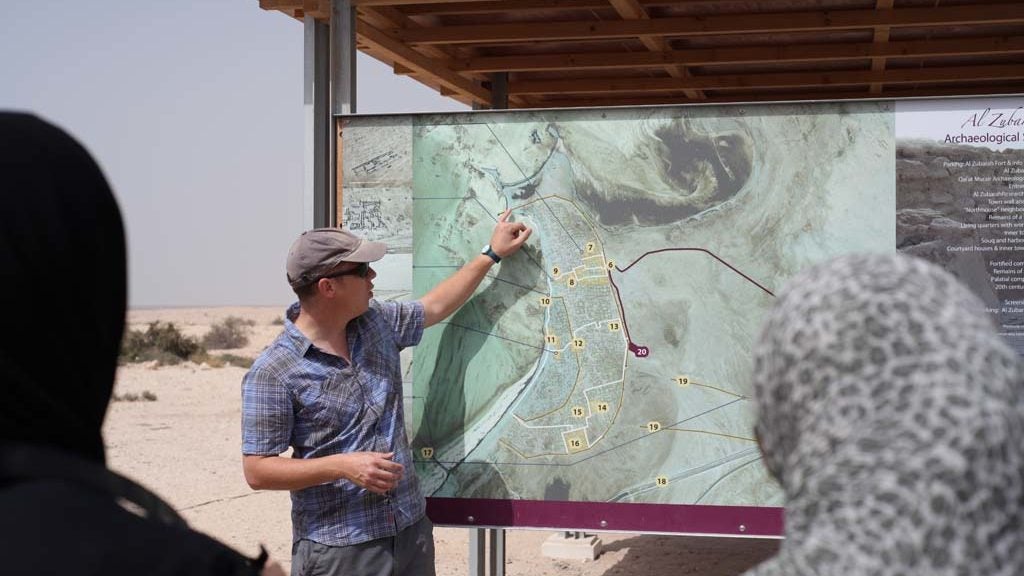Students Explore Zubarah History

Students and faculty from the Culture and Politics Program (CULP) at Georgetown University’s Edmund A. Walsh School of Foreign Service in Qatar (SFS-Q) embarked on a dusty trek one and a half hours northwest of Doha to the historical coastal site of Al Zubarah. A bustling tax haven and pearling economy, this abandoned trading post once attracted regional merchants eager to bypass the tariffs levied in the 18th and 19th centuries by rival ports in Bahrain and Oman.
Guided by Dr. Robert Carter of the University College of London (UCL), Dr. Moain Sadeq, participant in the first excavation team and a professor at Qatar University, and Dr. Tobias Richter of the University of Copenhagen, students pursuing the CULP major at SFS-Q were able to supplement their understandings of the early modern era in the Gulf region through this excursion. As a precursor to the formation of what are now the modern nation-states of Bahrain, Qatar and Oman, among others, the rise and decline of the Al Zubarah city-state contain important insights towards tracing the current geopolitics of the Gulf region.
“CULP majors explore the intersections between power and the cultural context through which individuals interact with the state and the international community,” explained SFS-Q’s Associate Dean for Students, Brendan Hill. “Al Zubarah’s history is a model case study of this interaction. Our students learned about the rise, fall and legacy of one of the major political actors in 18th and 19th century Arabia. Furthermore, they learned how archeology itself, the study of material culture, takes place within a political context.”
In 2009, the Qatar Museums Authority (QMA) requested the assistance of the University of Copenhagen’s specialized expertise in Islamic archaeology in renewing excavation and reconstruction efforts begun in the 1980s by Muhammad Jassim Al-Khulaifi of the predecessor to the QMA. This planned and focused bi-national collaboration signals the determination of Qatar to complete the analysis of the historical location of Al Zubarah, already submitted for consideration as a potential UNESCO world heritage site.
On the tour graciously provided by Dr. Richter, SFS-Q students and faculty also learned that landfills are not an exclusive feature of modern life. The Al Zubarah venue employed a dump immediately outside the city walls in which residents abandoned their refuse. This organized system of waste disposal yields very favorable prospects for the contemporary recovery of important historical materials including ceramics, coins, animal and botanical remains, and textiles.
The eventual decline of Al Zubarah as a free trade zone and gateway to the Arabian market was due to the gradual salinization of the water table, a historical rivalry between Bahrain and the nascent Qatari dynasty, and the economic fragility of a pearling monoculture dependent on a shallow harbor.